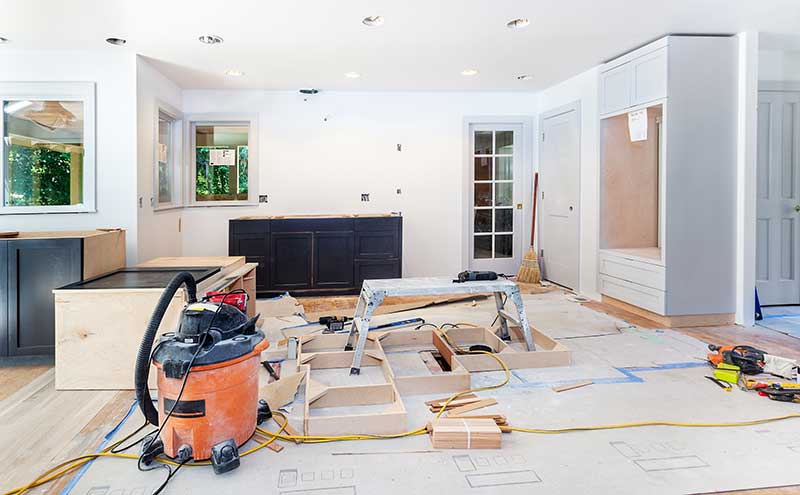Water Damage in the basement can lead to mold and musty smells. It causes damage to the walls and the floors. Additionally, it ruins the furniture and belongings. Getting rid of water and keeping your basement dry is essential to fixing the underlying problems.
Important steps to follow when your basement is wet
Safety first
Be careful while handling an electrical device when standing in water as it can cause electrocution. Wear rubber boots if you need to go to a water-filled basement. Also, ensure you stay dry and not touch any wet electrical wires or devices.
Know the source of water
Is it the first time you have had a water damage problem in your basement or a recurring one? If the water is from a plumbing leak, contact an experienced plumber for help. If the problem is due to seepage, remember it’s likely to keep happening.
Move the things which might attract mold
Materials like paper, fabric, wood, and leather will attract mold if they remain wet in the basement. Dry out, save the things whichever you can, and discard the rest. Also, Water damage restoration contractors can partially replace some of the water-damaged wood floors.
Signs that your basement is wet
Apart from a plumbing leak, local flooding, or seepage, there are two other major causes of the water damage in the basement. One is surface water and surface groundwater.
Sign 1# Water coming up through concrete basement floor
If the water comes through the basement or the walls that meet the floor, the source might be surface groundwater. The main reason for this is Hydrostatic pressure. Rising groundwater and saturation during wet weather cause hydrostatic pressure. The pressure causes to push the water through cracks and openings in the concrete.
Sign 2# Water stains on the foundation wall
This problem occurs when the water isn’t draining away properly. If the water in your basement is only near the exterior foundation walls, the problem will likely be surface water. There are a few reasons for this problem.
Causes:
Overflowing gutters: Water flowing from the gutters can get into the basement and cause foundation cracks.
Leaks around basement windows: The water fillswhen the leaves and debris clog the window wells. This water can leak into the basement through gaps and cracks.
Landscape slope: The yard and the soil around your house should slope away from your foundation to keep water from pooling and saturating the soil.
Settled pavement: The rainwater can flow towards the house if the pavement cracks and settle over time. Hence, it is important to contact a professional contractor who can replace the pavement.
Leaky roofs: The water leaking in through the roof can damage the basement ceilings or walls.
Sign 3# Flooded Basement
Basement flooding is common during wet weather. There are many reasons for the basement flood.
Sump pump problem: The failure of the sump pump due to mechanical reasons can flood your basement.
Plumbing failure: The basement can also flood due to a burst pipe, cracked washing machine hose or failed hot water tank.
Exterior drainage tile failure: The chances of your basement being flooded is high if the french drain system fails or is installed incorrectly. Hence, make sure the exterior drainage is set up properly.
Storm sewer backup: The heavy rains cause the municipal sewer system to be overwhelmed with water. Water can back up into the system and your basement whenever the water levels get too high.
Tips to prevent water damage in your basement
Improve outside drainage:
Improve the outside drainage as it cleans the gutters and prevents overflow during a storm. Importantly, add downspout extensions to ensure the soil around the foundation properly slopes away from the house.
Add Interior Drainage: An interior drainage system can effectively solve your basement water problem. It is effective as it captures the water before it reaches the basement. It automatically discharges the water outside your house.
Protect against plumbing leaks: Replace an old tank-type water heater. If the water heater’s interior rusts out, it causes a major flood in the basement. Also, ensure to replace the rubber washing machine hoses if they show cracks.
Install New windows: Replace and upgrade the windows to prevent clogging of leaves, debris, and water leaks.
Furthermore, fix the foundation cracks and check for roof damage to prevent water damage in the basement.
Hire a Professional Water Restoration Contractor
Contact BTBT Home Renovators if you need help with water damage in the basement or require a water damage restoration. When your home is damaged from water, our highly trained technicians will locate, monitor, and document the entire drying process. We have the specific damage restoration training, experienced personnel, and equipment to respond & restore your home quickly.

